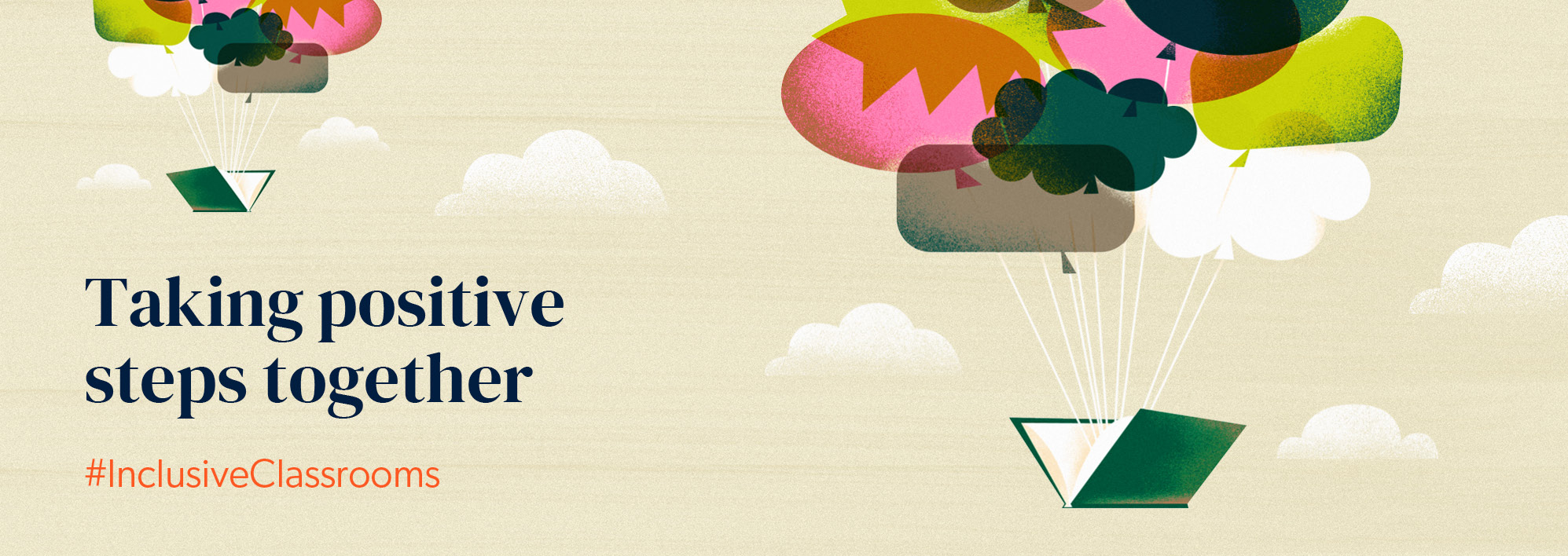History lessons and examples from the classical world offer a superb, safe space to think, interrogate and share many of the issues that are present across the school curriculum. That’s why I strongly believe they can benefit other subjects and offer a great foundation for a truly diverse curriculum.
For example, think about studying identity, diversity and community within the PSHE curriculum, or society and democracy. These themes within PSHE embed the British values which will have also been introduced and explored within a history lesson. If you have a whole school curriculum which highlights these links, then core vocabulary, knowledge and topics are not simply repeated, but they are expanded on, and interrogated further. When teachers collaborate across the school to identify these links and plan for their inclusion, we help to create a diverse setting for students to thrive and learn in.
As a history teacher, I know that teaching history is not about burying the past, but rather using it to help us understand the present. A truly diverse curriculum needs to reflect all students’ diverse backgrounds, with visuals and interpretations used to highlight people from the past with respect and dignity, and which draws on the most up-to-date scholarship to help our students interrogate past topics.
In this blog, I will share some steps which we have taken recently throughout our school to make our classrooms as inclusive as possible.
Collaboration is key
Use your team around you and fight for more department time. Spend time together, discussing and identifying core knowledge, practising any language you struggle to model, and sharing ideas and resources.
Every aspect of history is important, but what is important to your subject specialists and to your students in their own contexts? To help with this, our humanities team joined in with other departmental meetings. We identified and mapped out any cross-curricular links within topics as a whole school and then grouped together to discuss how we introduced or taught a key piece of vocabulary to check there was no repetition.
For example, our history team met with the music team, focusing on the study of African drumming and its links with slavery. We collaborated around the quotation, “Breaking the silence, beating the drum,” which recognises that drums from African countries accompanied slaves on their terrifying journeys, and once in the new world, African enslaved people connected with their heritage through drumming. The drums symbolised the freedom they had lost and their struggle to regain it. Both topics were taught in Year 8 within our school, so with some reshuffling, the music department changed their order of sequence so that it was taught at the same time as the history team taught their unit on slavery. Both teams then shared resources and made sure they had not repeated vocabulary or topics and they ended up with a piece of music performed at the Herstory exhibition, which celebrated Black females throughout history.
Our PSHE lead also met with every head of department to map out any cross-curricular links. The history department collaborated further with the PSHE lead and SLT contact to create a whole school audit for SMSC. We found that creating these links and aligning curricula within the school helped the students articulate their learning more. When asked what they were doing and why, they could explain, and with reference to other subjects.
Referencing the classical world
Making more references to the classical world within your existing curriculum can help you tackle numerous subjects – radical politics, slavery, consent, empire, theatre, tragedy, to name but a few – across different subjects and curricula within your school.
We can use the classics as a way of opening up debate with our students about the topics they consider important. For example, the ancient world offers great examples of radical politics, which could lead to amazing comparisons and discussions about democracy. In 427 BCE the people of Athens voted, democratically, to put to death the entire male population of the town of Mytilone and to throw the women and children into slavery. Thousands of people in total. This was their punishment for changing sides during the Great War between Athens and Sparta. It was brutal, and never happened, as the voters got cold feet the next day, but this example opens up dialogue about democracy. What is democracy? Is this a democratic system? This is not only something for specialised classics teachers, and doesn’t require timetabled space dedicated to teaching classics within the curriculum (although that would also be wonderful!), we just need to make reference to the ancient world in our existing curricula around the school.
This approach helps us to celebrate and unite the diverse backgrounds we find within our schools, and facilitates better conversations in the classroom: a positive outcome for any subject, that offers huge benefits for our students, and for us as teachers.
Libby Isaac is a former Head of School for secondary, who now works flexible hours leading on teaching and learning and teaching humanities. She has a podcast called Libby’s Learning Pod, consults for the Historical Association, specialising in primary school humanities curriculums, and is an author for HRWK magazine.

